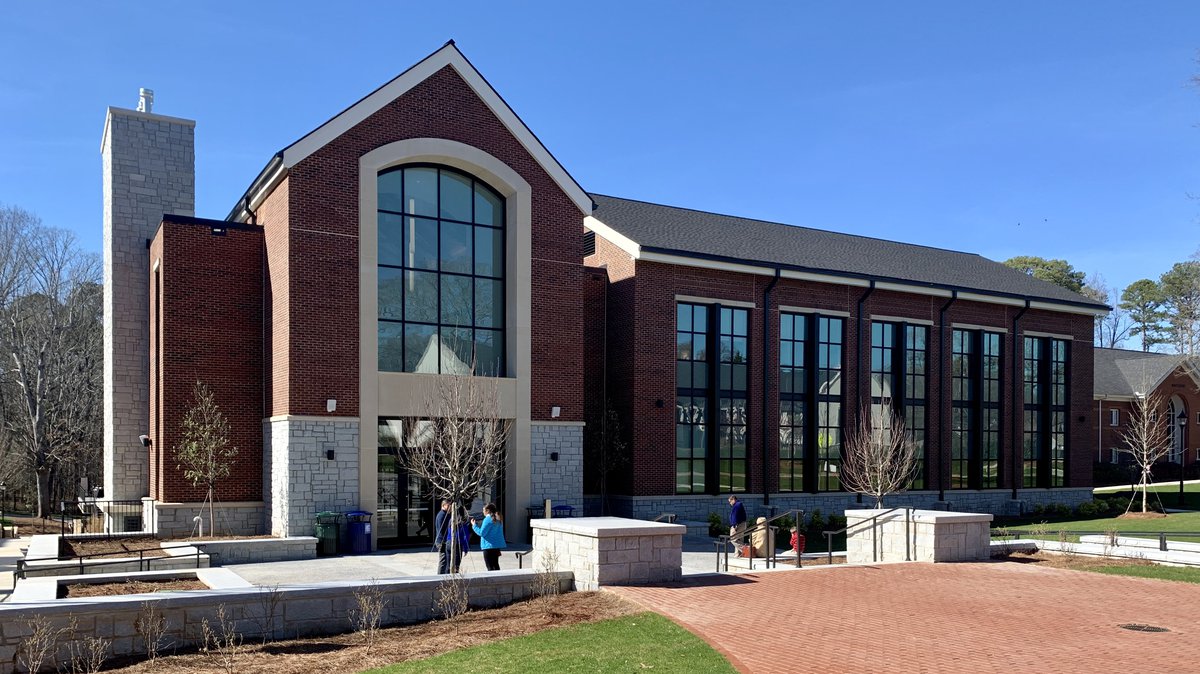By Eva Roytburg and Katie Bartlett
The Emory Wheel
OXFORD, Ga. — Oxford College added more courses and increased class sizes in response to student protests over a lack of spring course offerings, according to a Nov. 16 email from Associate Dean for Academic Affairs Valerie Molyneaux to Oxford first-years. Additionally, Oxford added a special Add/Drop/Swap period on Nov. 19 for first-year students.
The changes came after about 40 students at Oxford gathered in front of Seney Hall to express concerns over course registration, among other student life issues on Nov. 11 and 12.
“We understand the initial registration process was difficult for some students, and we are offering additional academic advising hours this week to provide students with one-on-one assistance as they finalize their schedules,” Molyneaux said.
Molyneaux told the Wheel the administration considered a number of factors when planning the first course registration, including the number of enrolled students and anticipated student interest in specific classes, and hired extra faculty to support the larger class. Students under-enrolled in classes that are traditionally popular, so classes were added to meet the demand.
The email said 250 additional seats have been offered. Molyneaux wrote in a statement to the Wheel that 10 classes were added in addition to seats in four existing classes.
Rachel Asante organized the protests after course registration left her and others without enough courses to be a “full-time student” at Emory. Asante said she registered for 11 credits, while a full-time student must be enrolled in at least 12 credit hours of classes for the semester.
“I’m p----d to the point of tears,” Asante said. “It’s not even about planning — it’s about the fact that I don’t have my classes.”
Other students expressed similar frustrations with problems with course registration during the protest.
“I’m currently at nine credits right now,” Oluwaseun Abitogun said.
“There’s not even 8 a.m. [classes] available that I’m choosing not to take; it’s just that nothing is available. It boggles me.”
Ned Lewis said that course registration also left him a part-time student.
“I didn’t get classes on the second [course registration] split, so my financial aid could be canceled, and I could be unable to go here anymore,” he said.
Kirsten Oglesby said she had to “beg a teacher to drop a prerequisite” in order to enroll in enough credits for the semester.
On the second day of the protest, students wrote out a list of concerns for the school, called the “Oxford Triple AAA Proposal.” The document lists issues the protestors had in the areas of accessibility, allocation of funds and resources and accomodations.
By time of publication, 29 students had signed the document in support.
Molyneaux sent a follow up email to first years with the additional course offerings on Nov. 17, which include QTM 110 and others spanning across the humanities and social sciences fulfilling the Humanities, Art, Performance or History, Societies, Culture requirements. On Nov. 19, an additional Add/Drop/Swap period opened for freshmen so that they could make changes in accordance with these new offerings.
However, some students were not satisfied by the College’s response.
Abitogun said he was frustrated that highly-demanded classes such as required writing, science and physical education classes were not added.
“I understand it is a very difficult situation to be in, but I wish they had listened to students on which classes actually needed to be expanded instead of offering courses that aren’t reflective of general need,” Abitogun said.
While Asante said that the changes would help students, she still expressed frustration with the original lack of course offerings and seats available. She wished that the school had better adjusted to meet the demands of the larger class.
“I really appreciate Dean Molyneaux,” Asante said. “She’s been doing a lot, but these things should’ve been done in the first place, and the classes that were opened don’t seem to be helping the majority of kids here.”





